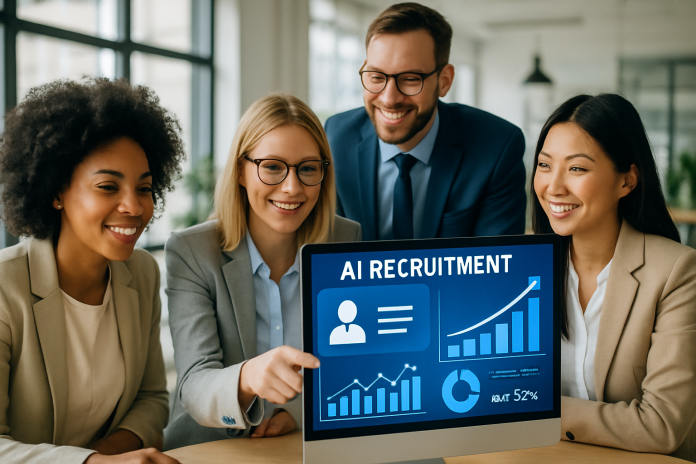Quick Take
- 53% of companies now use AI recruitment software, up 26% since 2023
- 62% of HR professionals express optimism about AI in recruiting processes
- Leading platforms like Juicebox AI and HireVue drive automated hiring workflows
- Predictive analytics reduce employee churn while accelerating talent acquisition
- Data privacy and algorithm bias remain key implementation challenges
Corporate hiring practices are getting a major AI makeover as adoption rates climb across industries. Fresh research from Skima AI shows more than half of companies now use AI-powered recruitment software, representing a notable 26% jump from 2023 numbers.
This shift signals growing trust in automated hiring technology, with 62% of HR professionals showing optimism about AI’s recruitment role, Simpplr data reveals. The change marks a fundamental transition in how organizations handle talent acquisition – moving away from manual processes toward data-driven hiring approaches.
Automation Eliminates Hiring Bottlenecks
AI technology is cutting through recruitment pipeline slowdowns by automating resume screening, interview scheduling, and candidate outreach. This automation frees up HR teams to focus on strategic evaluation and personal assessment, speeding up hiring timelines overall.
Companies like Juicebox AI and HireVue showcase this development, delivering advanced solutions from AI-powered video interviews to candidate sourcing through natural language processing. These platforms help organizations find and connect with top talent more effectively than traditional approaches.
Data Analytics Revolutionize Candidate Assessment
The technology’s main strength comes from analyzing massive datasets to improve candidate matching beyond standard resume reviews. Predictive analytics offer insights into job performance potential and employee retention, helping companies cut turnover costs and boost long-term hiring success.
Sense AI shows another step forward in automated candidate engagement, handling communications across various channels while keeping interactions personal. This proves especially useful as talent markets grow more competitive and complex.
Integration Hurdles Need Strategic Planning
Despite operational gains, AI adoption brings serious challenges around data privacy protection and preventing algorithmic bias. HR leaders stress the importance of balancing tech efficiency with human oversight to maintain diverse and fair hiring practices.
The technology’s ongoing development suggests AI will stay central to recruitment strategies as organizations pursue competitive edges in talent acquisition. Companies investing in these platforms show better readiness for handling changing labor market conditions while keeping hiring standards high.






